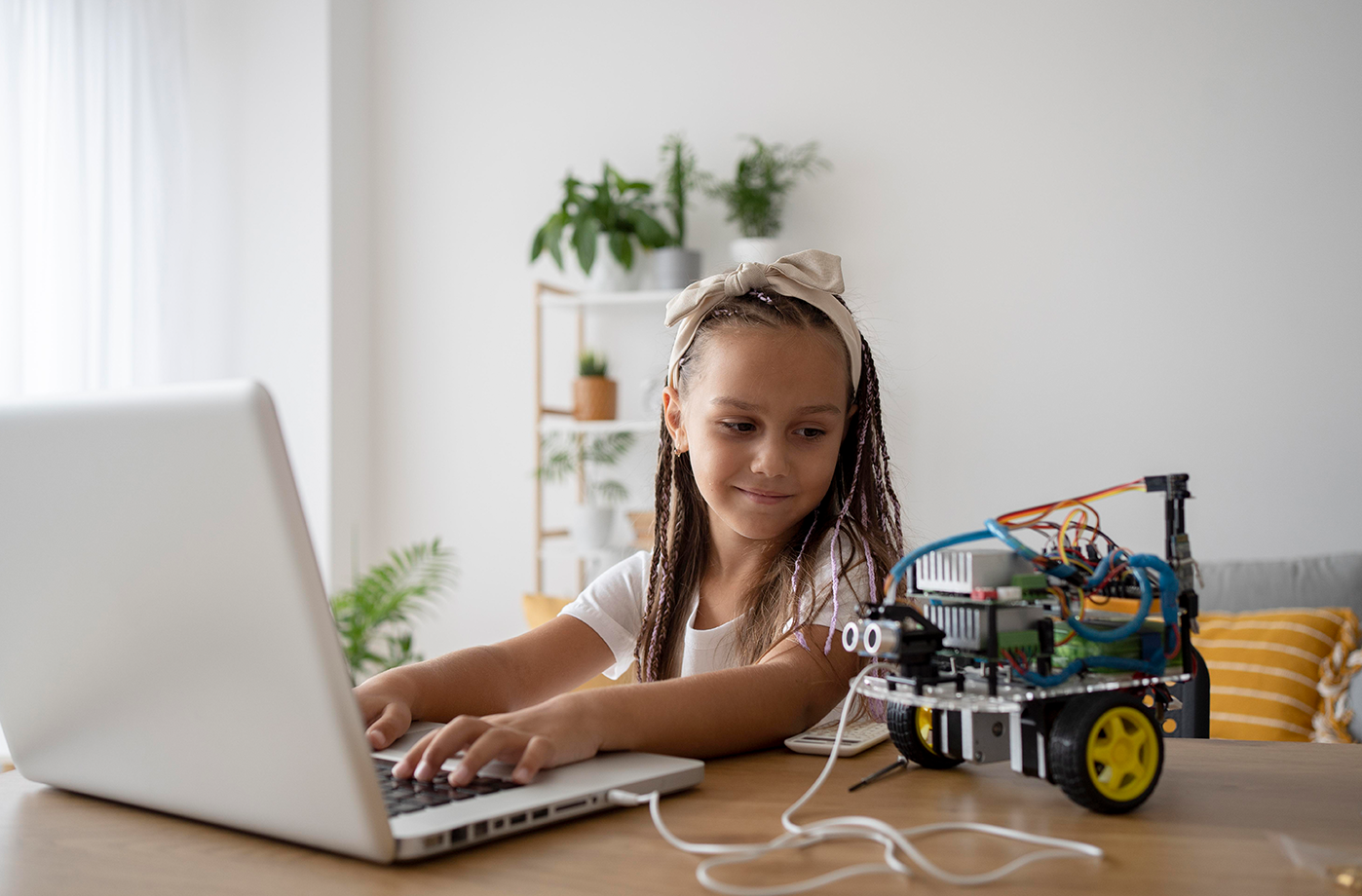Srđan Krčo
Students today use digital technologies as a natural part of their educational process, raising the question of how traditional teaching methods can adapt to these new realities...


Srđan Krčo
CEO DunavNet
Today, children and students prefer reading books on computers, often opting for shortened versions over traditional paper editions. They take photos of presentations and study from their mobile phones. When they don’t know something or want to verify information, they first turn to Google search.
It’s expected that tools like ChatGPT, Gemini, and others will follow a similar path, offering pages and pages of text on a given topic and even solving math problems captured by a mobile phone camera.
Given this situation, is it realistic to expect how we educate, learn, and evaluate knowledge to remain unchanged? It is not. As a student, advanced calculators emerged, capable of much more than basic arithmetic operations. One year, they were banned; the next, they weren’t. Professors realized that there was neither sense nor purpose in preventing modern technologies, especially not for the sake of preserving the status quo. With the advent of tools like ChatGPT, many teachers and professors initially reacted by suggesting that these applications should be banned, arguing that it’s impossible to assess a student when the task might have been solved by artificial intelligence. However, in my opinion, the correct response should be to consider how we can change lectures, assessment methods, and even the educational process itself, recognizing that AI-based tools are here, will remain, and will only continue to improve.
In an era where digital technologies are integral to children’s upbringing and where almost every piece of information is just a click away, is it realistic to expect that traditional teaching methods will remain unchanged? When students can solve complex problems with a simple snapshot, how can educators accurately assess their knowledge and understanding? More importantly, how can teachers make learning more effective and engaging in this digital age? Should the focus remain on memorizing formulas and dates, or should it shift to equipping students with critical thinking, adaptability, and problem-solving skills necessary for success in today’s world?
These questions highlight the urgent need for a transformation in education in response to the rapid advancement of artificial intelligence (#AI). Instead of fearing that AI will disrupt today’s education model and seeking ways to prevent the application of #AI technologies, we should embrace its ability to fundamentally alter teaching and learning, making it more personalized, engaging, and relevant to the needs of today’s students.
Adaptive learning platforms offer a solution by tailoring educational experiences to individual needs and learning styles. By analyzing real-time performance data, these platforms can identify what a student has learned, what they haven’t, and their preferred learning methods, adjusting lessons, exercises, and resources accordingly. This personalized approach allows students to learn independently, fostering more profound understanding and engagement.
Teachers become facilitators and mentors in this new paradigm, guiding students through their educational journeys and providing support where and when needed. AI-powered tools assist teachers in tracking progress, identifying areas for improvement, and offering timely interventions.
The rise of AI calls for carefully examining how we assess knowledge. Traditional standardized tests, often criticized for focusing on rote memorization, must be more relevant in an AI-driven world. Instead, continuous assessments, guided by data, can provide a more comprehensive picture of a student’s knowledge. By continuously monitoring students’ interactions with learning materials, teachers, and peers, as well as their activities in both physical and digital worlds, a more complete picture of their knowledge can be obtained, identifying areas where additional learning and support are needed.
Moreover, AI can facilitate more authentic and engaging assessment methods, such as project-based learning and simulations. These approaches allow students to apply their knowledge to real-world problems, fostering critical thinking, creativity, and collaboration skills—key to success in the 21st century.
AI is transforming how we teach and assess and redefining the learning environment itself. The traditional classroom becomes just one of the places where learning occurs, primarily for social interaction and teamwork. Virtual environments will gradually take precedence when introducing new material and attending lectures due to their flexibility, easy access to various resources, and personalized learning opportunities.
In this blended model, students will engage in interactive discussions, group projects, and hands-on activities in the physical classroom. At the same time, AI-powered online platforms will be used for individual instruction, self-paced learning, and access to a wealth of digital content.
Integrating AI in education is not just about adapting to new technologies; it’s about preparing students for a rapidly changing world. As AI continues to automate routine tasks, the demand for human skills such as critical thinking, creativity, problem-solving, adaptability, and emotional intelligence will only increase.
Therefore, it’s imperative that educators shift from delivering standardized content and assessing the ability to reproduce it to developing skills and the ability to apply knowledge in real life. AI can play a vital role in this shift, freeing teachers from administrative tasks and allowing them to spend more time mentoring and inspiring students.
The application of AI in education is not a threat but an opportunity. By embracing AI as a tool that can significantly enhance the educational process, teachers can create more effective, relevant, and enjoyable learning experiences for all students. The key is to harness the potential of AI while preserving the invaluable human connections at the heart of education and the development of individuals equipped for life in the digital age.
This text was written using ChatGPT and Gemini tools, with several iterations, stylistic adjustments, and word choices, and ultimately faster than without #AI.